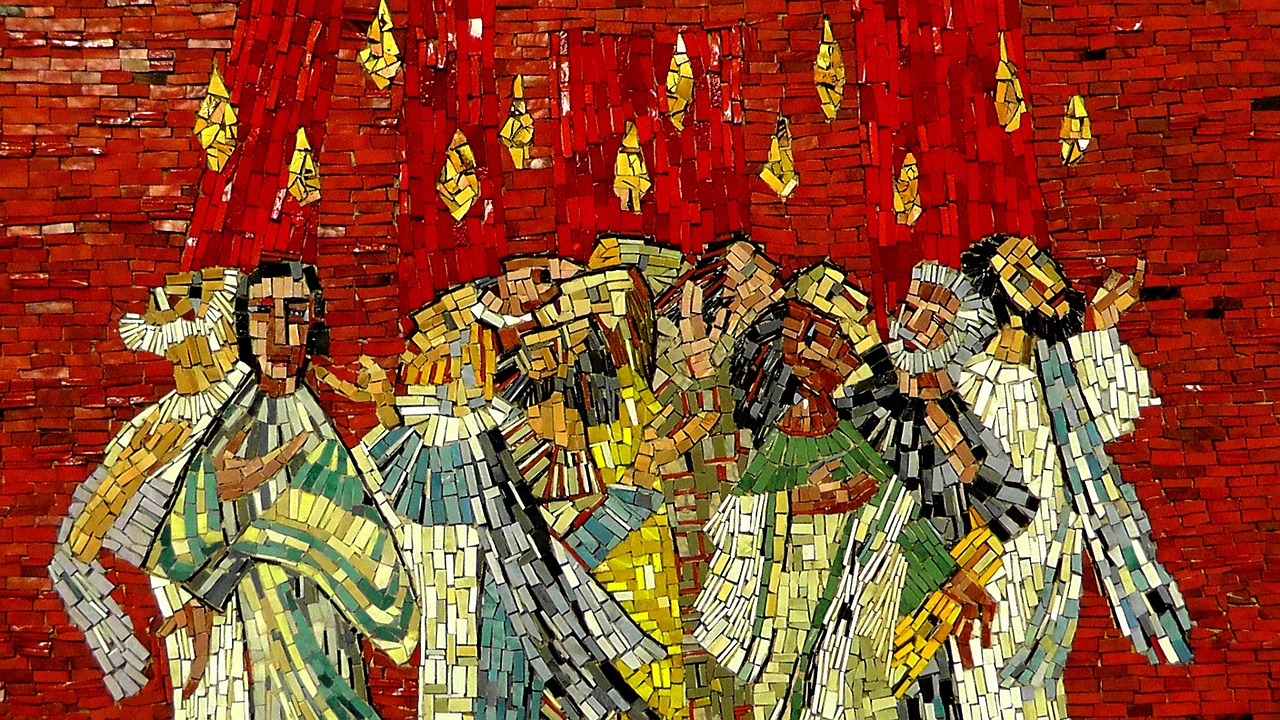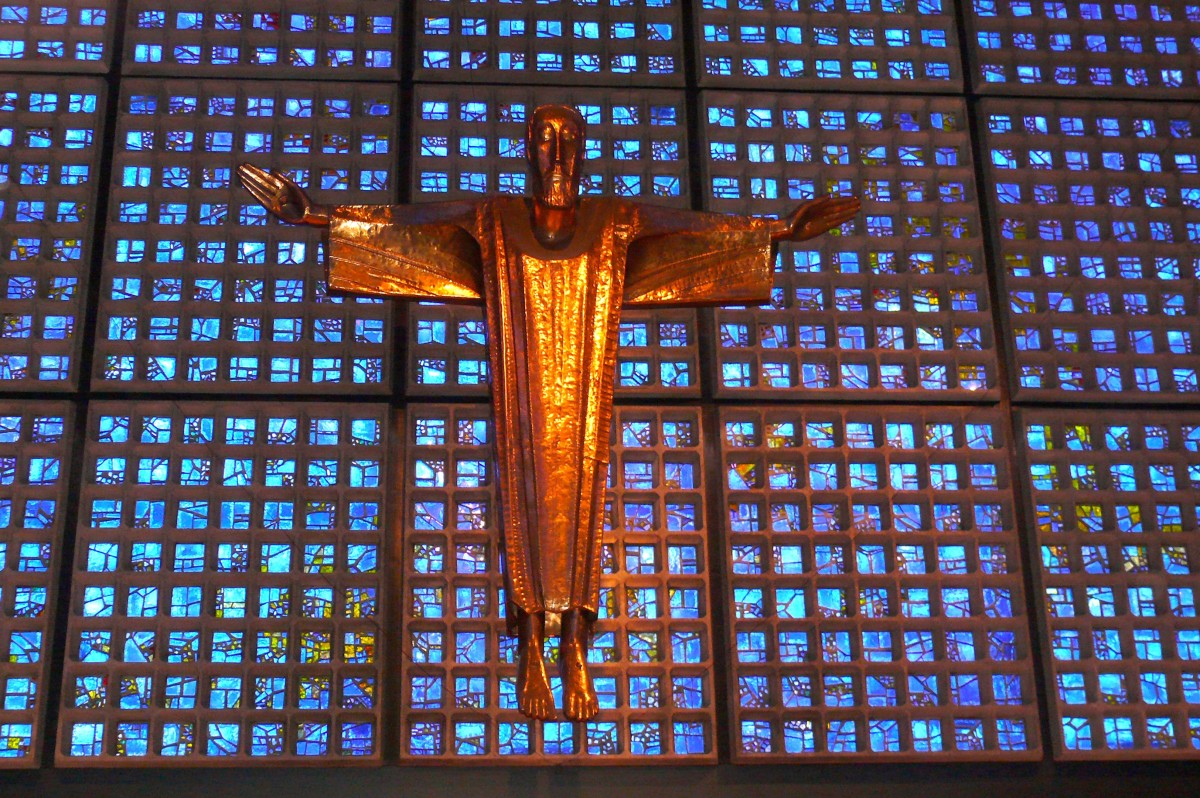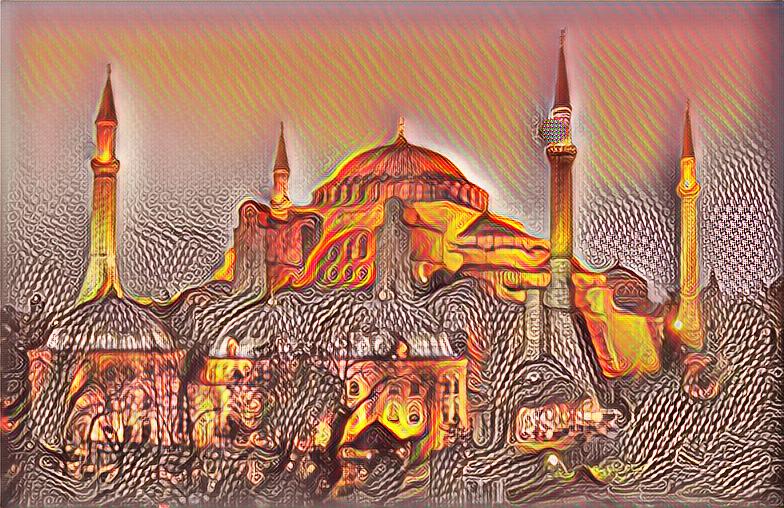The following is the first lecture in an eight lecture series.
A couple of days ago, I read a column in a national newspaper whose title had a strange attraction on me. It read, “Only theologians really understand religion.” Deep within me this must have struck a chord, though at the same time I was skeptical. And the text, I am afraid, proved my skepticism right.
It turned out that this was actually a very useful article except for its title. Its author argued against some scientific experiments with ‘religion’ – he referred specifically to the attempt to show that seeing a picture of the Virgin Mary suppresses pain – on the grounds that this was based on an inadequate notion of religion. Quite rightly so, I thought, and it shows why thinking about religion, thinking about God is more important than some people think. Yet the ‘theologian’ he cited to bolster his claim was none other than the French scholar Emile Durkheim, himself an atheist and one of the pioneers of the sociological study of religion.
Do not misunderstand me. His use of Durkheim was well chosen for his argument, but it illustrated the problem with his title and – I might say – to some extent the problem with these eight lectures.
Thinking about religion and about God is no longer an exercise to which only professional theologians or Church people are authorised and entitled; any such attempt takes place, rather, within an environment that is fundamentally pluralistic in character, and theological reflection must take notice of that. You may think this is a fact so obvious as to make it almost trivial, but it is surprising how often theological developments are still considered as though they took place almost in a vacuum.
The positions taken by individual theologians are then presented as primarily responding to those of other theologians in past or present. Now I am not saying that this is wrong; of course theologians define their own views in relation to their theological forebears, but one must not overlook that their arguments are also developed within a cultural, social, scientific, and economic context, and this is true not only for so-called contextual theologies.
The major factor to be considered in relation to the phase of theological thinking about God that is to be covered in the following eight lectures is undoubtedly the radical change in the way religion has been understood and practiced in Western Europe over the past two or three hundred years. This includes, but is not limited to, the rise of atheism, which in itself is of course quite a significant factor to be considered in lectures on the topic of God.
To see this significance, we only have to remember that, as far as we know, atheism has never else existed as a practical, religious (or if you so wish: non-religious) option in the history of humankind before. Sure enough, there has been debate about atheism, and people have often been called atheists long before this time. Thus, in late antiquity Christians and Jews were called atheists by the “pagan” majority of the Greco-Roman world because they denied the existence of their many gods.
Christians in turn called pagans “atheists” because they did not know the true God. Up to the 17th century, in Europe atheism normally denoted the denial of God’s trinitarian nature. And even in 17th century France, where atheism in our modern sense of the word had become a favourite topic of intellectual debate, such debates could still be punctured by the admission that no one had actually ever met an atheist.
Atheism then is, in an eminent sense, a product of the Christian world in Western Europe, and this at once shows why it is relevant for a theological lecture such as this one. As the societies – in which atheism became an option for the first time – were at the time thoroughly Christian, can we avoid the irritating suspicion that there may be a connection between this dominance of Christianity and its transformation through the various reform movements of the late Middle Ages and of Early Modernity on the one hand and the rise of atheism from the late 17th century on the other? In other words, is there something in the Christian conceptualisation of God that made this development possible? And if so, does this mean that the rise of atheism has in itself a theological significance?
shows why it is relevant for a theological lecture such as this one. As the societies – in which atheism became an option for the first time – were at the time thoroughly Christian, can we avoid the irritating suspicion that there may be a connection between this dominance of Christianity and its transformation through the various reform movements of the late Middle Ages and of Early Modernity on the one hand and the rise of atheism from the late 17th century on the other? In other words, is there something in the Christian conceptualisation of God that made this development possible? And if so, does this mean that the rise of atheism has in itself a theological significance?
Our thinking about God then takes place in an environment in which atheism has become a viable existential option, and this fact cannot and should not be ignored – in the own best interest of theological reflection. Yet atheism is not the only aspect to be considered.
As I mentioned initially, in a sense atheism today seems to be but part of a wider phenomenon, which may be described as the pluralisation and at the same time individualisation of religious options. We cannot even start thinking about God without reminding ourselves that for the vast majority of people today, most believers included, belief in God is something that is fundamentally subjective, not only in the sense that faith and a relationship with God exists – if it exists – within an individual’s subjectivity, but in the stronger sense that views about religion and God are a matter of choice for the individual person.
Religion is, by most people, no longer seen as a matter of in principle objective knowledge, but as a matter of personal (or communal) inclination and taste. It seems therefore inappropriate, a category mistake, to ask whether a religious statement is ‘true’ or ‘false’ – as inappropriate as it would be to ask the same about preferences for music, food or clothes.
By contrast, traditional theology, whether we think of Augustine, Aquinas, or Calvin, was predicated on the premise that theology could be as much true or false as, say, biology or mathematics. Only this explains why these theologians felt mostly confident to battle adherents to other faiths or of rival interpretations of Christianity, and even occasionally to invoke the government’s aid for squashing notorious heretics. Theology was an eminently cognitive and therefore public exercise.
Historically speaking, there is little doubt that this view was discarded in favour of the ‘subjective’ one once it was clear that post-Reformation plurality was here to stay. The great theological controversies between Catholic, Calvinist, Lutheran and Anglican divines in the late 16th and during much of the 17th century were still conducted on the basis that they were all after a common truth, and that a common theological method could in principle discover it. You will never find any of those figures revert to the kind of statement that is now all but inevitable: “For me as a Catholic …”; “for me as an Evangelical …” In other words, they don’t appeal to principles that would be inaccessible to the other side simply by virtue of an individual decision or choice.
What does it mean to think about God under these circumstances? How is theology affected, in other words, by the subjective and thus pluralistic paradigm within which religion is today cast? We shall address these issues in detail over the next eight lectures.
Let me say, though, in anticipation of the individual approaches we shall study that we can in principle distinguish two main tendencies that have emerged. One of them seeks to preserve the universality of theology at the prize of its specific confessional character, the other holds on to the specific character of a theology but gives up effectively on its claim to universal validity.
The former transforms confessional theology into rational or natural theology, as you find it classically in William Paley or today in someone like David Tracy. Such a theory claims universal truth precisely insofar as it abstracts from the specific doctrines of, say, Christianity, let alone Catholicism or Calvinism.
The latter, which you find classically in Karl Barth or later in George Lindbeck and the Yale School, preserves much of what is characteristic for a specific faith tradition, but this is achieved by abandoning the claim to universality. In other words, in order to appreciate this kind of theology you will be asked to start from an acceptance of major creedal statements; theology thus serves primarily the religious communication and clarification amongst those who belong to a certain community and believe in a set of doctrines already.
If thinking about God is in many ways a task that is connected with our own environment and determined by the parameters of our own social and cultural context, this is not to say that there is nothing that ties us to earlier attempts to come to terms with this topic. On the contrary, in many ways our own understanding of religion and our own notions of God are, in spite of all that separates us from the past, derived from and continuous with the theological tradition.
Most concepts are borrowed from earlier thinkers, most avenues have been tried at least once, and quite often have those who started by intending to revolutionise the discipline ended by acknowledging their profound debts to those who came before them. Let me point out here two rather consistent themes that have surfaced and resurfaced one time after another in theological attempts to think about God.
The first I would call ‘transcendence and immanence.’ Let me introduce it by saying that faith in God in the world of religions almost invariably expresses a tension between a conceptualisation of God in strongly anthropomorphic language and imagery, and the belief that God can achieve things he could not possibly achieve if he were indeed so much like us. Human beings crave a relation with their gods, and in order for such a relation to exist they must be somehow like us. Yet at the same time, the reason we believe in such beings is that they are precisely not like us.
This tension has resulted, both in Greek culture and in the Jewish tradition, which was later taken over by Christianity and Islam, in a critique of the original anthropomorphic elements. Quite famous are the comments by the 6th/5th century philosopher Xenophanes:
The Ethiops say that their gods are flat-nosed and black,
While the Thracians say that theirs have blue eyes and red hair.
Yet if cattle or horses or lions had hands and could draw,
And could sculpture like men, then the horses would draw their gods
Like horses, and cattle like cattle; and each they would shape
Bodies of gods in the likeness, each kind, of their own.[1]
Xenophanes is not criticising religion per se: what he opposes is the tendency to imagine gods in a way that resembles human beings of one sort or another. This seems reasonable enough, but of course creates problems if applied rigorously. For, if we take away any property in our conceptualisation that might be taken from the human and non-human creation, what is left? Nothing, it seems, given that any knowledge we have, any concept we could possibly use, and word we employ or any idea we possess are taken ultimately from the realm of our experience.
Thus, the imperative to think and speak of God in a way that avoids the use of improper anthropomorphisms leads directly to the problem of how we can know and speak of God at all? Is there anything we can legitimately say of God without falling into this trap?
The most influential attempts to solve this problem have come down under the label of the ‘three ways’ of 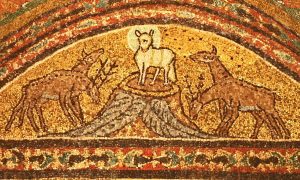 divine predication. The first of those is the ‘way of eminence,’ which was held notably by Duns Scotus. According to this view, predicates we use for finite being in a limited way apply to God in an unlimited or eminent way. In other words, when we say God loves, this means essentially the same as saying ‘a mother loves,’ except that God’s love brings the love of the mother to a kind of perfection that one cannot find among human beings. In a similar way, one might say that calling God omnipotent is saying that he possesses what we call power, yet in a degree otherwise unknown.
divine predication. The first of those is the ‘way of eminence,’ which was held notably by Duns Scotus. According to this view, predicates we use for finite being in a limited way apply to God in an unlimited or eminent way. In other words, when we say God loves, this means essentially the same as saying ‘a mother loves,’ except that God’s love brings the love of the mother to a kind of perfection that one cannot find among human beings. In a similar way, one might say that calling God omnipotent is saying that he possesses what we call power, yet in a degree otherwise unknown.
Before him, Thomas Aquinas had argued for a subtly different understanding of these common predicates. Thomas thought that we used them neither in completely different meanings (equivocally) nor strictly univocally as Duns would maintain, but analogically. The meaning is not the same, but it is related because God created the world. Here is what he writes at one point in his magisterial Summa Theologica:
But no name belongs to God in the same sense that it belongs to creatures; for instance, wisdom in creatures is a quality, but not in God…When we apply wise to God, we do not mean to signify anything distinct from his essence or power or being. And thus, when this term wise is applied to man, in some degree it circumscribes and comprehends the thing signified…Hence, no name is predicated univocally of God and creatures. Neither, on the other hand, are names applied to God and creatures in a purely equivocal sense… Because if that were so, it follows that from creatures nothing at all could be known or demonstrated about God; for the reasoning would always be exposed to the fallacy of equivocation. Therefore, it must be said that these names are said of God and creatures in an analogous sense, that is, according to proportion. For in analogies the idea is not, as it is in univocals, one and the same; yet it is not totally diverse as in equivocals; but the name which is thus used in a multiple sense signifies various proportions to some one thing; e.g., healthy, applied to urine, signifies the sign of animal health; but applied to medicine, it signifies the cause of the same health.[2]
Within the 20th century, there has been heated debate about the permissibility of the doctrine of analogy, as it has been called. Notably, Karl Barth, who saw here the slippery slope that would allow people to infer whatever they wanted about God from creation, called it an ‘invention of the Antichrist’ and its prominent use in modern Catholic theology the only good reason for not becoming Catholic. On the other side of the aisle, modern Thomists like John Milbank have responded in kind and clearly consider this principle absolutely essential for any theological knowledge of God.
The third of these three ways is at the same time the most radical one. It is known under the name of ‘via negative,’ or negative or apophatic theology, and rests on the assumption that any common use of predicates for created and uncreated being is equivocal and thus misleading. This argument was developed by philosophers, but came to dominate Christian theology for a long time and is still a major influence in contemporary debates. Does theology then have to end, as Wittgenstein advised at the end of the Tractatus: Of what one cannot speak, one must remain silent? Interestingly, at least some of those theologians given that they profess not to know anything about God, go to rather great lengths writing about him.
The negative theologians allow one way around their ban on divine predication, and this is through the use of negations. Thus, by saying that God is, for example, immortal, we do not say that we know what this is; we only say that unlike ourselves he does not die. Negative predicates then would seem merely to repeat in different words that God is entirely different, transcendent and that, therefore, whatever we say or think about ourselves or about our world cannot apply to God himself.
The most influential thinker in the apophatic tradition is an unknown 5th century theologian, whose writings have been transmitted under the name Dionysius the Areopagite (there is no doubt that he is not the Dionysius converted by Paul according to Acts 17; therefore, he is often referred to as Ps.-Dionysius). In one of his writings we read:
The Cause of all … cannot be spoken of and it cannot be grasped by understanding. It is not number or order, greatness or smallness, equality or inequality, similarity or dissimilarity. It is not immovable, moving, or at rest. It has no power, it is not power, nor is it light. It does not live, nor is it life. It is not a substance, nor is it eternity or time. It cannot be grasped by understanding since it is neither knowledge nor truth. It is not kingship. It is not wisdom. It is neither one nor oneness, divinity nor goodness. Nor is it a spirit, in the sense in which we understand that term. Nor is it sonship or fatherhood and it is nothing known to use or to any other being. It falls neither within the predicate of nothingness nor of being. Existing beings do not know it as it actually is and it does not know them as they are. There is no speaking of it, nor name nor knowledge of it. Darkness and light, error and truth—it is none of these. It is beyond assertion and denial.[3]
What do we learn from this kind of theological language about God? I take it that the point is not so much that we are directly instructed in factual knowledge about God (this would go strictly against the idea of negative theology), but that a text like the one just quoted introduces the reader into a kind of meditation by means of which she or he is directed away from their normal preoccupation with worldly things until their minds open up to the possibility of an immediate contact with the divine which is no longer mediated through concepts, words, or theories. The apophatic tradition then has a strong spiritual and mystical bend, and it is thus no coincidence that it was popular within such religious traditions in Christianity and beyond.
I started this overview by noting a tension between transcendence and immanence within religions generally. Apophatic theology seems to go a long way to eliminate this tension at the expense of immanence. Its sole aim is, or appears to be, to understand that and how God is utterly transcendent. Yet, is this in any obvious way the ultimate solution to this tension within Christianity? True, insofar as Christianity is emphatically a monotheistic religion, it seems only consequent to think about God as someone who is ultimately remote and distant from anything humans can know or relate to.
Yet is there not something else that is distinct about Christianity? Is there not the notion that this same God ‘became flesh through the virgin Mary?’ Apophatic theology seems to go the furthest way in emphasising the utter uniqueness and transcendence of God, but it has regularly been criticised for not giving room to the centrality of the Incarnation for Christian theology.
For if the notion that in Jesus Christ God became human is taken at all seriously, does this not have rather far-reaching consequences for our understanding of God as well? It certainly is no coincidence that the Platonist philosophers, who were fond of the via negative, rejected Christianity chiefly because they felt it made nonsense of the idea of God by claiming such a being could be induced to undergo such a humiliating process.
For Christian theology, conversely, putting the Incarnation at the centre has inevitably implied a re-evaluation of the transcendence-immanence tension. God did after all enter the world, the Word became flesh, as the gospel of John famously put it. He cannot then, after all, be understood as merely detached, foreign, transcendent. There is, in other words, a strong case to be made from within Christian theology against the emphasis put on God’s otherness in the apophatic tradition. This comes out even more clearly once we realise that the Incarnation has had a direct influence on thinking about God through the distinctly Christian doctrine of the Trinity. If this is more than a play with words and numbers, it must entail a mediation of the infinite and the finite, of God and world, time and eternity and so forth.
Yet this does not mean that putting Christ at the centre of Christian thinking about God tilts the balance in favour of God’s immanence. Rather, it opens up another, different dichotomy, which I would refer to here as the ‘nature-grace tension.’ The question is simple: If God reveals himself in and through Jesus Christ, what does this mean about knowledge of God outside this revelation?
This problem has not, for the longest time, caused Christianity too many qualms. Somehow it seemed possible to say that some knowledge of God was possible through creation generally, but that full and complete knowledge, specifically the knowledge of the loving and merciful God, was only revealed in Jesus Christ. The fact that, as far as Christianity was concerned, most of their non-Christian acquaintances (pagan philosophers, Jews, Muslims) seemed to have arrived at some such conclusion gave rather strong support to such a theory.
Thus, it was only under the conditions of modernity that this dichotomy opened up in its full force. In fact, it became part of the division between the two responses to the rise of religious plurality that I have described earlier. Once there was the option on the table that theology could either ideally become natural theology or ideally leave natural theology behind entirely, the distinction between nature and grace, which had of course been controversial for a long time, became dominant for the issue of God’s knowability as well.
Not surprisingly, it is again Karl Barth who led the fiercest assault arguing that from a theological point of view, knowledge of God
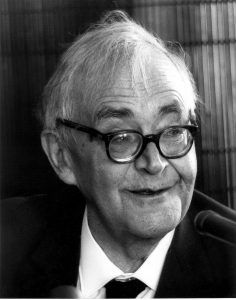
had to come only and entirely through the revelation of God in Jesus Christ. His critique of Thomas’ doctrine of analogy does not therefore lead him to side with negative theology, but for him the issue is ultimately one of Christocentrism.
I conclude: thinking and talking about God has always been controversial. The very knowability and the adequacy of any conceivable theology have been hotly debated for a long time. Christianity has, on the one hand, participated in the tendency of Platonism to emphasise the utter difference and transcendence of God in comparison to created being, but it has also through the ideas of the Incarnation and the Trinity produced a counter-balance to those notions.
At the same time, the influence belief in Christ has had on the doctrine of God meant that another tension has opened up between natural and supernatural knowledge of God. Over the past 200 years and culminating in the 20th century this question has been very much at the centre of theological debates about God.
This brings us back to the beginning. Thinking about God, knowledge of God within and without Christianity has become such a controversial topic due to the new, pluralistic situation within which any such attempt is now situated. We shall move on from here to consider in the next lecture some of the non-theological counter-currents that have influenced theological debate in our own time.
Johannes Zachhuber is Professor of Historical and Systematic Theology at the University of Oxford. He is a Fellow of Trinity College. He earned his DPhil from Oxford in 1998 and obtained a habilitation in systematic theology at Humboldt University, Berlin, in 2011. His areas of specialisation include the history of Christian thought in late antiquity and the nineteenth century; secularisation theories; and religion and politics. He has authored or co-authored five books and edited or co-edited nine. He has written many articles and book chapters in all his research specialisations.
[1] Xenophanes, Diels-Kranz, fr. B 16, 15.
[2] Thomas Aquinas, Summa Theologica, Part 1a, q. 13, art. 5.
[3] Dionysius the Areopagite, The Mystical Theology.
